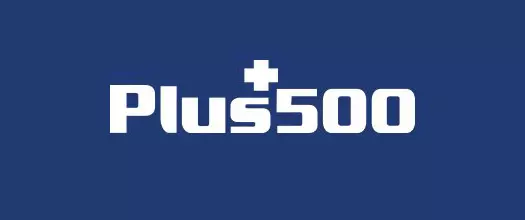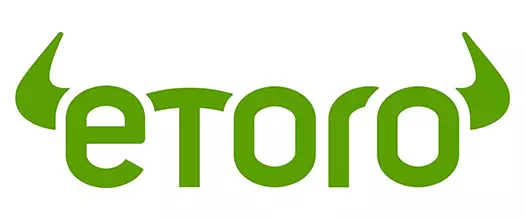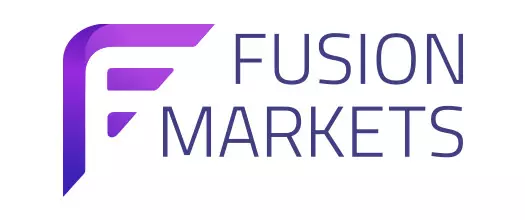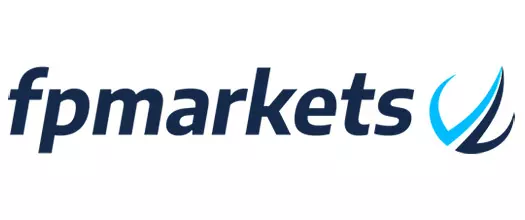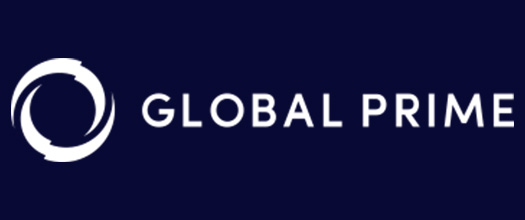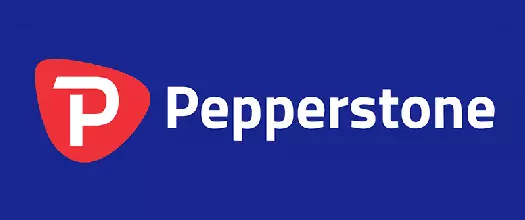- Jump to:
- Main features of the best Greece Forex brokers
- Forex Legislation
- Financial Regulators
- Payment Methods
- Trading Software
- Mobile Trading
- FAQ
Our team of expert traders has tested many regulated and trustworthy forex brokers that accept traders from Greece and has compiled a top list of the best among them. Each broker operating in Greece received a quality score based on several factors, including Trustpilot ratings, regulation, fees and commissions, available trading platforms, customer service, and more.
 Plus500 USThis content applies only to Plus500 US and clients from the United States. Trading futures involves the risk of loss.
Plus500 USThis content applies only to Plus500 US and clients from the United States. Trading futures involves the risk of loss. eToro61% of retail investor accounts lose money
eToro61% of retail investor accounts lose money Fusion Markets74-89% of retail's CFD accounts lose money
Fusion Markets74-89% of retail's CFD accounts lose money FP Markets73.85% of retail investor accounts lose money
FP Markets73.85% of retail investor accounts lose money Global Prime74-89% of retail CFD accounts lose money
Global Prime74-89% of retail CFD accounts lose money Pepperstone75.5% of retail investor accounts lose money
Pepperstone75.5% of retail investor accounts lose money
Below, you can find a comprehensive comparison table of forex brokers for traders in Greece. We rank them based on several factors, including regulation, spreads and commissions, Trustpilot ratings, trading instruments, trading platforms, and deposit and withdrawal methods.
Our team has thoroughly evaluated all brokers listed below using TradingPedia’s exclusive methodology.
Main features of the best Greek forex brokers
- Brand
- Trading platforms
- Minimum deposit
- Regulations
- Trading instruments
- Spreads
- Leverage for Forex CFDs
- Leverage for Crypto CFDs
- Leverage for Indices CFDs
- Deposit methods
- Withdrawal Methods
- Commission per Lot
- Contact details
Often thought of as the cradle of Western civilisation, Greece is a south-eastern European country with a population of 10.7 million and a gross domestic product of around US$218.2 billion in 2018.
Greece was severely affected by the 2008 global financial crisis, so much so that it was forced to seek bailouts from the International Monetary Fund (IMF) and the European Central Bank (ECB) to cope with its sovereign debts.
The local economy finally started to rebound in 2018 after a ten-year period of recession. As a member state of the European Union (EU), Greece abandoned its local currency, the drachma, in 2002 and adopted the euro, which is managed and administered by the European Central Bank, headquartered in Frankfurt, Germany.
The Bank of Greece (est. 1927) plays an important role in the implementation of the EU monetary policy in the country. It is also tasked with ensuring the stability of the financial system in Greece and overseeing privately owned insurance companies. This central financial institution issues euro banknotes and handles their circulation in the country.
Despite the decade-long period of recession and high unemployment rates, the foreign exchange market in Greece is still alive, with many foreign brokers serving customers from the cradle of democracy. The Greek forex trading sector is closely supervised on a local level by the Hellenic Capital Market Commission (HCMC).
Greece’s Athens Stock Exchange (ATHEX) is the country’s main stock market, with a market cap of €69.3 billion as of February 2018. ATHEX operates several markets, including the securities market where investors can trade bonds, exchange-traded funds (ETFs) and stocks, among other financial instruments.
Greek forex legislation
Spot foreign exchange trading and contracts for difference (CFDs) are both legal in Greece and fall under the supervision of the local regulatory body, the Hellenic Capital Market Commission (HCMC).
Foreign brokers can either apply for an HCMC licence or serve local customers with a licence issued in another member state of the European Union under the Markets in Financial Instruments Directive (MiFID).
The MiFID serves several purposes, including standardising financial practices within the EU and harmonising regulations across the member states. Some HCMC-regulated brokerage firms, such as the Athens-based AAAFx, are part of the Athens Stock Exchange Guarantee Fund. Under this scheme, Greek traders are entitled to up to €30,000 per person in payable compensation for their losses.
The local regulator is a member of the Paris-based European Securities and Markets Authority (ESMA) and, as such, operates under its auspices. The purpose of this supranational entity is to create a unified framework of financial regulations across member states of the European Union.
Therefore, many, if not all, of the regulatory guidelines established by ESMA apply in Greece as well. Forex brokers who serve Greek customers are required to offer them negative balance protection. This is a safety measure that aims to protect customers from the potential bankruptcy of the brokerages they trade with.
If a customer ends up in the red after a stop-out, their account balance is automatically restored to zero. This policy ensures a guaranteed limit on the losses retail clients can incur, particularly when they trade leveraged derivatives such as contracts for difference (CFDs).
Another thing worth mentioning is that there are restrictions on the maximum leverage brokers can offer to customers from Greece and the European Union as a whole. For the uninitiated, leverage essentially enables traders to ‘borrow’ money from a broker when trading derivatives like CFDs. This allows them to trade with more capital than they have deposited into their accounts.
For example, if a person has €1,000 available in their balance, they can expand it to €20,000 with maximum leverage of 1:20. This allows them to significantly boost their gains when they close the position in profit. The opposite is true if the trade is unsuccessful. A retail trader can be burdened with crippling debt.
This renders trading with leverage a highly volatile venture, which is why many financial regulators worldwide have decided to impose restrictions on leveraged instruments. Under the regulations set by ESMA, the maximum leverage permitted on major forex pairs like USD/GBP or EUR/USD is capped at 1:30, while that for minor pairs, major indices and gold is restricted to 1:20.
Greek investors who trade other commodities and non-major indices have their leverage limited to 1:10. The sharper the price movements inherent to a given instrument, the more volatile the respective market is. Because of this, ESMA has limited the allowed leverage to 1:5 for individual equities and 1:2 for the cryptocurrency markets.
Regulated Greek brokers must also comply with certain rules pertaining to margin. In line with the ESMA regulations, brokerages must close out the open CFD positions of retail customers at 50% margin, which applies on a per-account basis.
The brokers are also expected to display the percentage of losses retail clients incur when trading contracts for difference. ESMA has suspended all bonuses and promotions related to volume trading.
Another condition Greece and EU brokerages must comply with is to keep their customers’ money in segregated accounts and never use it for hedging purposes. This protects the funds of traders in the unfortunate event of their brokerage filing for insolvency.
Greek financial regulators
The Hellenic Capital Market Commission (HCMC) is tasked with regulating all financial activities outside the banking sector in Greece. By contrast, the central banking institution, the Bank of Greece, has other responsibilities such as issuing euro banknotes, ensuring the stability of the local financial system, and supervising all private banks that operate in the country.
The HCMC is an independent, self-sustaining regulatory body, funded by the fees contributed by the entities it oversees. This regulator was established in 1995 under Law 2324. Since Greece is part of the European Union, HCMC regulations are coordinated with the framework established by ESMA.
The Greek regulator has a very informative website, available both in the native language and English. This is where traders can find information about all regulated entities as well as warnings about brokerages suspected of fraudulent activities. The list of licensed brokers is updated regularly.
Under the provisions of MiFID, trading companies licensed in member states of the European Union have the legal right to offer their services to customers from other EU countries. For example, Greek traders should feel free to join brokerages that have obtained licences from the Cyprus Securities and Exchange Commission, known as CySEC.
CySEC was formed in 2001 and has licensed a great number of overseas retail forex brokerages and providers of binary options. As a matter of fact, CySEC was the first financial watchdog to introduce regulations on binary options as financial instruments.
It also oversees and controls the Cyprus Stock Exchange. CySEC investment companies that violate the guidelines of the regulator face sanctions and various disciplinary penalties. The watchdog conducts regular investigations to ensure its licensees operate in compliance with the frameworks it has set.
Greece forex payment methods
In line with EU financial regulations, Greece-friendly brokers segregate their clients’ balances from their operational funds. The money is held in major financial institutions, protecting customers from broker insolvency.
Brokerages authorised to accept live-account registrations from the Hellenic Republic commonly accept payments initiated with debit or credit cards. The most widely used cards are those by the brands Visa, Mastercard and Maestro. Cards allow money transfers in many different currencies, although most Greek traders naturally prefer to conduct their payments in their local currency, the euro (EUR).
Another benefit here is time efficiency. Deposits carried out with cards are usually the quickest, as they are completed either instantly or, at worst, within a couple of hours. Some of the top Greece-friendly brokerages gladly cover the costs of card deposits, but this is not always the case.
We recommend that Greek traders contact the customer support staff or visit their chosen broker’s payments section for additional information on potential deposit fees. Another widely used method by Greek customers is the bank wire transfer. You can initiate it either in person or by using the e-banking platform of locally operational banking institutions like Eurobank.
Eurobank Ergasias is one of Greece’s five major banks, along with Citibank, HSBC, Alpha Bank, Piraeus Bank and Attica Bank. It also operates in five other European countries, namely Luxembourg, the UK, Cyprus, Greece’s neighbour Bulgaria, and Serbia. The bank is compliant with the provisions of MiFID and boasts an asset volume of €64 billion. It has 730 customer service branches across Greece and abroad.
Greek traders who deposit via bank transfers may incur additional fees, but these vary between banks. Payments initiated via bank wire transfers are significantly slower. Their completion requires two to three business days at best.
Some Greece-regulated brokerages, like AAAFx, give customers the option to deposit with cryptocurrencies such as Bitcoin. The commissions, if any, are very small, while deposit processing times are usually under half an hour. This renders Bitcoin a desirable payment option for many Greek traders. E-wallets like Skrill and Neteller are also listed in the banking sections of many Greece-friendly brokerages.
Popular trading software in Greece
The software a broker utilises often has a significant impact on traders’ decisions on whether to register or not. Many EU-regulated brokerages develop their software in-house, so features may vary wildly across different trading sites.
The three key qualities most traders look for in a trading platform are simplicity, stability and efficiency. The MetaTrader 4 (MT4) platform many Greek forex brokers use ticks off all three boxes. This is third-party trading software, created by the Russian developer MetaQuotes.
It is geared mostly towards the needs of those who trade the forex markets. It provides traders with various tools and resources for market analysis that can significantly improve their trading performance.
There are several trading modes here – manual, algorithmic, and automated with the help of Expert Advisor programmes developed in MetaQuotes Language 4 (MQL4). The platform is suitable for traders of all skill levels.
It features various tools for advanced technical analysis but manages to retain its user-friendliness at the same time. The design is very user-oriented to the advantage of beginners. MT4 is fully compatible with iOS/Android and offers a choice of roughly thirty languages, including Greek.
Traders from Greece who want to diversify their portfolios should try the newer version of the software, MetaTrader 5, which offers a larger set of financial instruments, including bonds, options, stocks and futures.
Some brokers that serve the Greek market, like AAAFx, offer the ZTP software by ZuluTrade in parallel with the MetaQuotes platform. ZTP is browser-based and does not require any additional software downloads. The platform is equipped with several unique risk-management functionalities and has settings for customisable auto-trading. It allows for forex and CFD trading.
It offers as many as 26 languages, has multilingual support, and works on all major portable devices. However, the most distinctive trait of the ZTP platform is that it offers social and copy trading. Those who use this software can follow well-versed investors and copy their trades. The platform has over 1 million users and handles trading volume that exceeds $800 billion.
Mobile trading in Greece
Smartphones have become an inseparable part of modern life, with people using them for browsing, shopping, gaming, social interaction and, not surprisingly, trading. The smartphone frenzy is observed in Greece as well.
A 2016 survey showed that six out of ten residents of the Hellenic country own a smartphone, with almost half of the owners using their mobile devices to connect to the Internet. Another statistic on electronic device usage in the country indicates that mobile phones and smartphones are currently the most utilised type of device in Greece. This tendency is observed in forex circles as well, with an increasing number of investors taking their trading activities on the go.
Mobile trading enables them to keep a close watch on their positions and track price movements at all times. Moreover, the apps offered by reputable Greece-friendly brokerages succeed in replicating the desktop experience almost perfectly.
You can execute orders on the fly, create watchlists, and gain access to real-time quotes in most cases. The apps also make it possible for you to perform advanced technical analysis with the help of indicators and graphical objects on charts. Some Greek brokers offer downloadable apps along with a browser-based WebTrader.
